Filipina tour guides are passionate ambassadors of the Philippines’ vibrant culture, offering insightful tours that highlight the country’s rich heritage and breathtaking destinations, ensuring unforgettable experiences for visitors.
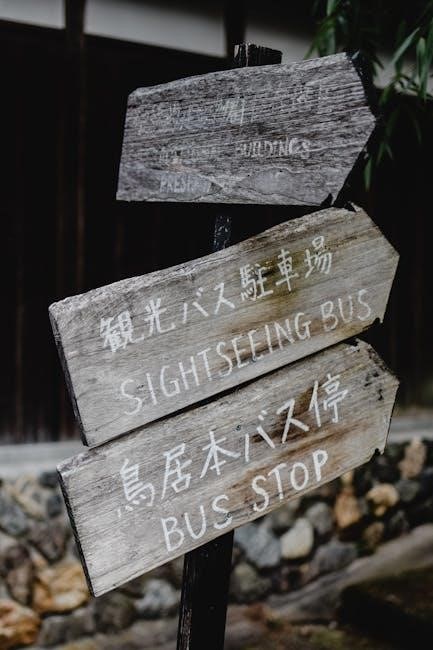
Overview of the Role and Importance
Filipina tour guides play a vital role in showcasing the Philippines’ rich culture, history, and natural beauty. Their expertise ensures tourists have memorable and informative experiences, while their passion highlights the country’s unique heritage. They serve as cultural ambassadors, bridging language gaps and fostering connections between visitors and locals. Their role is crucial in preserving traditions, promoting sustainable tourism, and contributing to the economy, making them indispensable in shaping the Philippines’ vibrant tourism industry and its global reputation.
Unique Qualities of Filipina Tour Guides
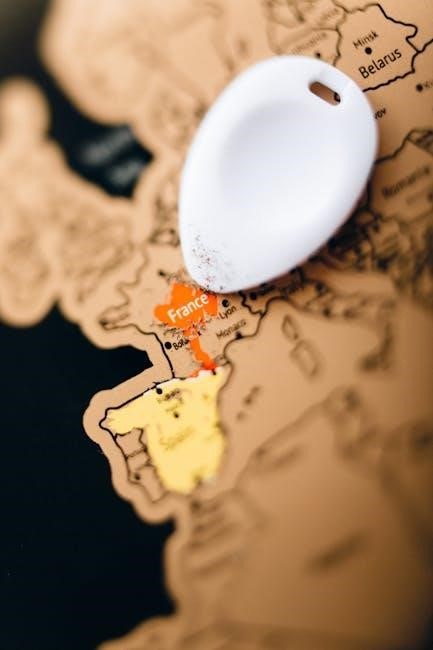
Filipina tour guides are known for their warm hospitality, genuine smiles, and exceptional storytelling skills. Their deep knowledge of local history, customs, and hidden gems ensures personalized tours that captivate visitors. They excel in creating meaningful connections, often sharing personal anecdotes that enrich the cultural experience. Their resilience, adaptability, and dedication to delivering memorable experiences make them stand out, offering a blend of professionalism and heartfelt passion that truly enhances every tour.
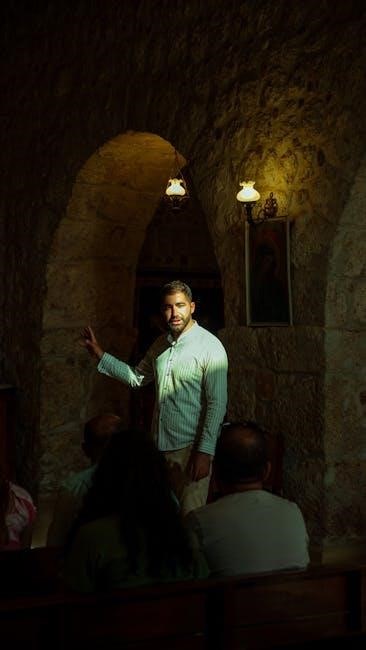
Popular Tourist Destinations in the Philippines
The Philippines boasts iconic destinations like Boracay, Cebu, and Palawan, offering stunning beaches, vibrant culture, and historic landmarks that captivate global travelers endlessly.
Beaches and Island Getaways
The Philippines is renowned for its pristine beaches and tropical islands, with destinations like Boracay, Palawan, and Cebu offering crystal-clear waters, powdery sands, and vibrant marine life. These getaway spots attract millions annually, providing opportunities for snorkeling, diving, and relaxation. Filipina tour guides often highlight hidden gems, such as Siargao’s surfing waves and El Nido’s limestone cliffs, ensuring visitors experience the full beauty of the archipelago’s coastal treasures and create lasting memories of their tropical paradise adventure.
Cultural and Historical Landmarks
The Philippines boasts a rich cultural heritage, with landmarks like Intramuros and Barasoain Church showcasing its historical depth. These sites reflect the Spanish colonial influence and the nation’s journey to independence. Filipina tour guides often share stories of resilience and tradition, highlighting how these landmarks embody the Filipino spirit. Visitors can explore centuries-old churches, historic forts, and vibrant festivals that celebrate the country’s diverse cultural identity, making these landmarks a must-visit for anyone seeking to understand the Philippines’ profound history and traditions.
Cultural Insights and Local Traditions
Filipina tour guides share rich insights into local customs, festivals, and traditions, offering visitors a deeper understanding of the Philippines’ vibrant culture and warm hospitality.
Festivals and Celebrations
Filipina tour guides often highlight the Philippines’ vibrant festivals, such as the Pahiyas Festival, Sinulog, and MassKara. These celebrations showcase colorful parades, traditional dances, and cultural rituals. Guides provide insights into the history and significance of these events, allowing tourists to fully immerse themselves in the local culture. Festivals are a testament to the Filipino spirit of resilience, faith, and joy, offering visitors unforgettable experiences and a deeper connection to the country’s heritage.
Local Cuisine and Food Tours
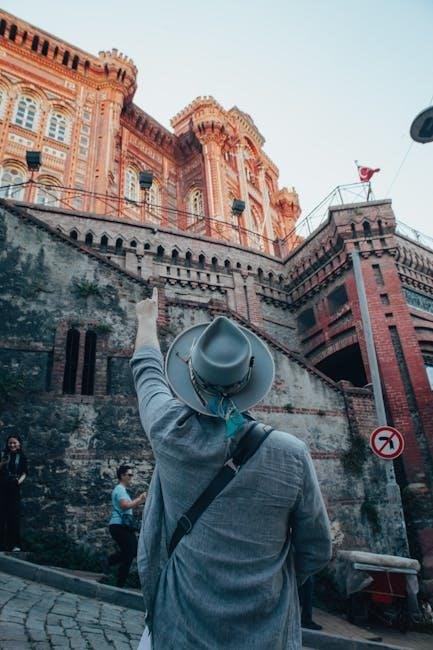
Filipina tour guides often showcase the Philippines’ rich culinary diversity, offering food tours that highlight iconic dishes like adobo, sinigang, and lechon. Visitors are introduced to local eateries, markets, and street food, such as balut and kwek-kwek. Guides provide insights into the history and cultural significance of each dish, allowing tourists to experience the country’s vibrant food culture firsthand. These tours are a delicious way to explore the Philippines’ heritage and hospitality.
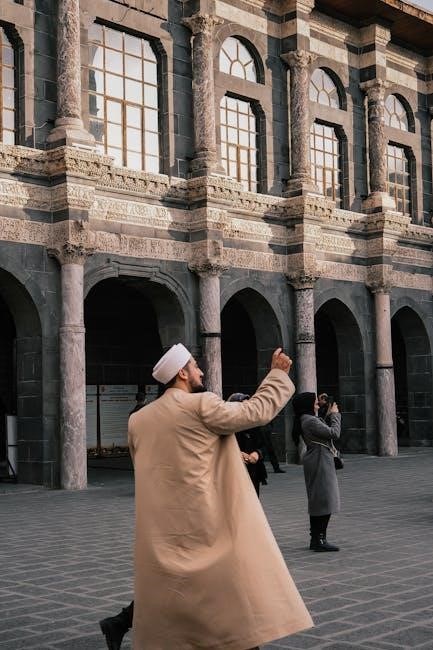
Challenges Faced by Filipina Tour Guides
Filipina tour guides face challenges such as limited resources, language barriers, and competition in a growing tourism industry, requiring adaptability and innovative strategies to succeed.
Language Barriers and Communication
Language barriers can hinder effective communication between Filipina tour guides and international tourists. While many guides are fluent in English, regional accents and slang may cause misunderstandings. Additionally, tourists from non-English speaking countries may require guides proficient in their native languages. To address this, many guides undergo language training to improve their communication skills, ensuring a smoother and more enjoyable experience for visitors from diverse linguistic backgrounds.
Balancing Work and Personal Life
Filipina tour guides often face challenges in balancing their demanding work schedules with personal life. The tourism industry requires long hours, including weekends and holidays, which can strain family time and personal well-being. Many guides manage this by setting clear boundaries, prioritizing self-care, and leveraging flexible time management skills. Despite the demands, their passion for sharing Philippine culture keeps them motivated to maintain a healthy work-life balance while ensuring memorable experiences for tourists.
Safety Tips for Tourists in the Philippines
Stay informed about local conditions, avoid displaying valuables, and keep emergency contacts handy. Respecting cultural norms and staying aware of surroundings ensures a safe and enjoyable trip.
- Plan ahead and research destinations.
- Keep belongings secure in crowded areas.
- Follow local advice and guidelines.
General Safety Precautions
When exploring the Philippines, tourists should remain vigilant and aware of their surroundings. Secure valuables, especially in crowded areas, and avoid displaying signs of wealth. Stay informed about local conditions and weather updates, as natural disasters like typhoons can occur. Avoid traveling alone at night and use reputable transportation services. Keep emergency contacts handy and respect local customs and traditions to ensure a safe and enjoyable experience. Always follow guidance from local authorities and tour guides to minimize risks.
- Stay hydrated and prepared for outdoor adventures.
- Avoid risky behaviors that could attract unwanted attention.
- Respect marine life and environmental regulations during island tours.
Emergency Contacts and Resources
For emergencies in the Philippines, dial 911 or 117 for police assistance and 160 for fire incidents. The Philippine Red Cross (redcross;org.ph) provides 24/7 medical aid. Tourists can contact the Department of Tourism’s hotline at (02) 459-5200 for immediate assistance. Keep embassy contacts handy for your home country. Carry a list of emergency numbers and share your itinerary with a trusted contact. Familiarize yourself with local emergency protocols to ensure prompt help when needed.

- Philippine National Police: 117
- Bureau of Fire Protection: 160
- Philippine Red Cross: 143
- Tourism Assistance Center (TAC): (02) 524-1723
How to Become a Successful Filipina Tour Guide
Develop deep knowledge of Philippine history, culture, and destinations. Enhance communication skills and embrace a friendly, approachable demeanor. Continuously learn and adapt to evolving tourism trends and demands.
Education and Training Requirements
To become a successful Filipina tour guide, one typically needs a bachelor’s degree in Tourism, Hospitality, or a related field. Proficiency in English and local languages, such as Filipino, is essential. Guides often undergo training programs accredited by the Department of Tourism, focusing on cultural knowledge, safety protocols, and customer service. Additionally, certifications in first aid and environmental conservation are highly valued. Many also participate in workshops to enhance their storytelling and interpersonal skills, ensuring engaging and informative tours for visitors.
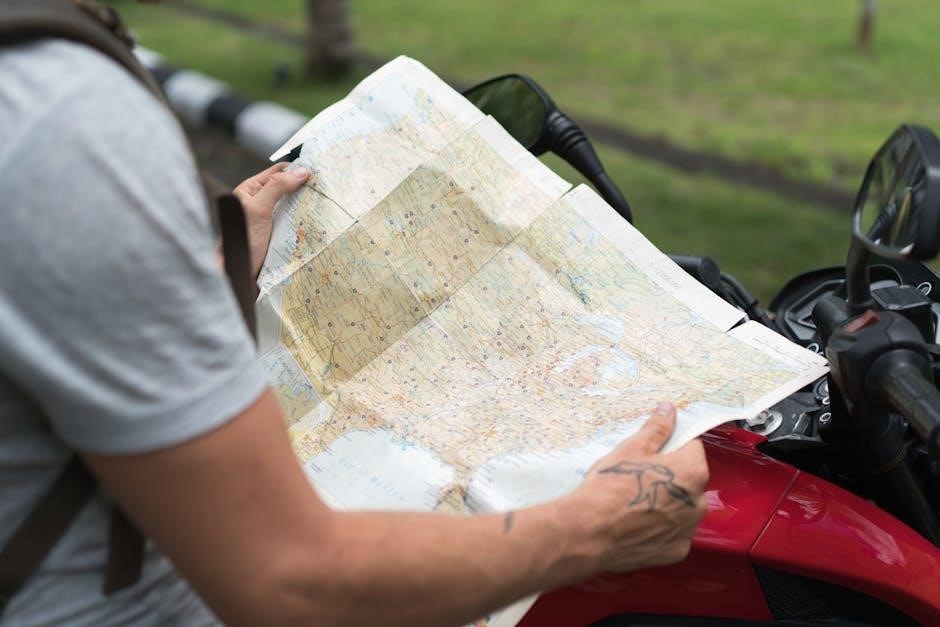
Licensing and Certification Processes
In the Philippines, aspiring tour guides must obtain a license from the Department of Tourism (DOT). This involves passing a rigorous examination that tests knowledge of history, culture, and local destinations. Many also pursue certifications in specialized areas like eco-tourism or cultural guiding. Training programs approved by the DOT are highly recommended to ensure guides meet high standards of professionalism and expertise. Certification enhances credibility and provides tourists with assurance of a knowledgeable and skilled guide.
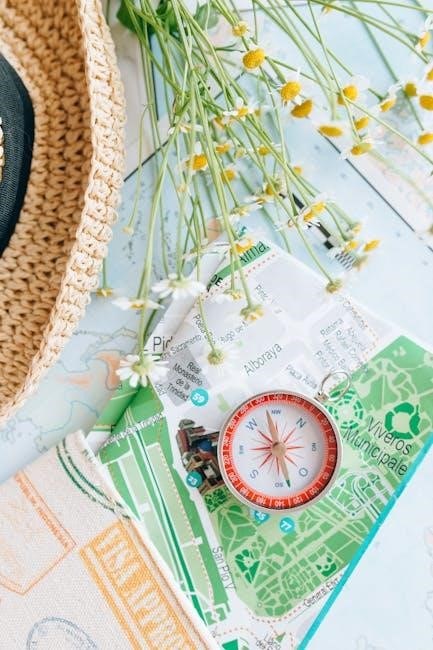
Digital Presence and Marketing Strategies
Filipina tour guides enhance their digital presence through social media, websites, and SEO, showcasing destinations and engaging with travelers to promote their services effectively online.
Using Social Media for Promotion
Filipina tour guides effectively utilize social media platforms like Instagram and Facebook to showcase destinations, share engaging content, and interact with potential travelers. By leveraging hashtags and geotags, they increase visibility and attract a global audience. Regular updates, customer testimonials, and behind-the-scenes insights create authentic connections, fostering trust and interest. Collaborations with influencers and travel bloggers further amplify their reach, making social media a vital tool for promoting their services and the Philippines’ beauty to the world.
Online Reviews and Testimonials
Online reviews and testimonials play a crucial role in promoting Filipina tour guides. Positive feedback from travelers highlights their expertise, hospitality, and ability to create memorable experiences. Guides encourage satisfied tourists to share their experiences on platforms like TripAdvisor and Google Reviews. Responding to feedback demonstrates professionalism and commitment to improvement. Testimonials are often showcased on websites and social media, building credibility and attracting potential clients. This word-of-mouth digital marketing strategy helps Filipina tour guides stand out in a competitive industry, showcasing their dedication and passion for their work.
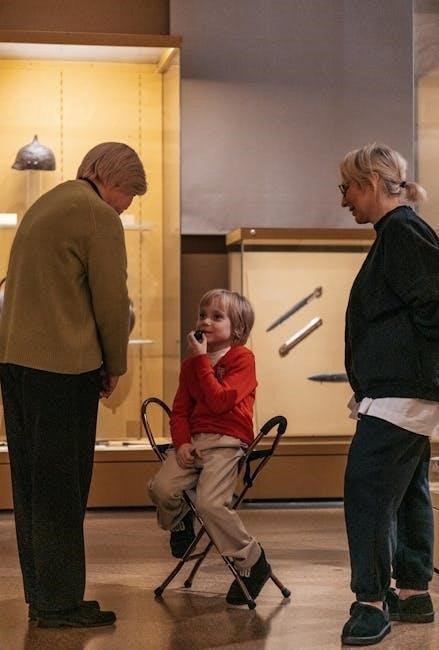
Future Trends in Philippine Tourism
The Philippine tourism industry is expected to embrace sustainable practices, leveraging technology like virtual tours and eco-friendly initiatives, with Filipina tour guides at the forefront of this evolution.
Sustainable Tourism Practices
Sustainable tourism practices are becoming a priority in the Philippines, with Filipina tour guides leading initiatives to protect the environment and preserve cultural heritage. Eco-friendly tours emphasize reducing waste, conserving marine life, and promoting responsible travel. Guides encourage visitors to respect local ecosystems and engage in community-based tourism, supporting local businesses and artisans. By fostering awareness and education, Filipina tour guides help create a positive impact on both the environment and local communities, ensuring a greener future for Philippine tourism.
Technological Advancements in Tour Guiding
Technological advancements are transforming the role of Filipina tour guides, enhancing their ability to deliver immersive experiences. Virtual tours, augmented reality, and mobile apps now provide interactive ways to explore destinations. Real-time translation tools bridge language gaps, while social media platforms and SEO strategies help guides reach a global audience. Digital booking systems streamline tour management, allowing guides to focus on creating memorable experiences. These innovations ensure Filipina tour guides remain at the forefront of modern tourism, blending tradition with technology for a seamless traveler experience.



0 Comments